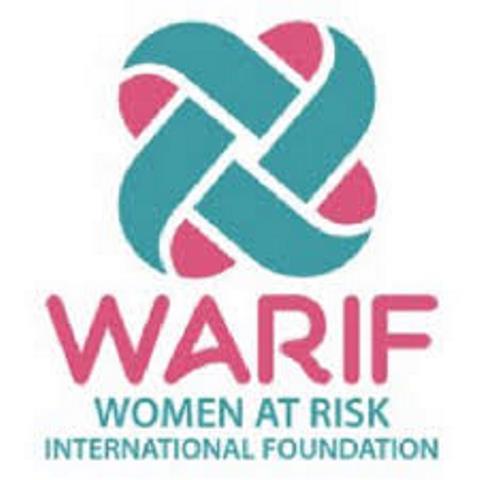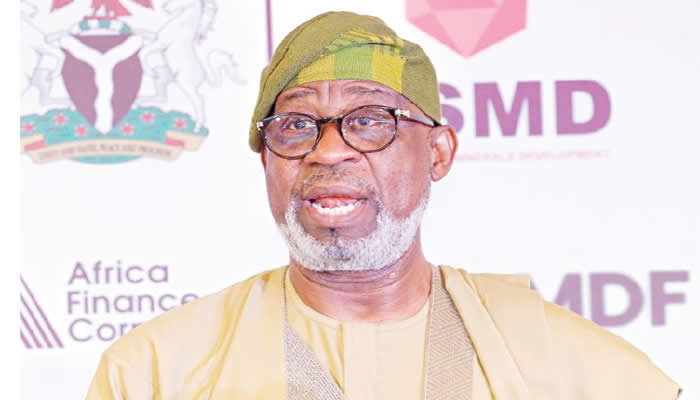General News
WARIF Completes First Cycle of Its Rural Sensitization Program on Covid-19

In the months since COVID-19 was first reported in Nigeria, rippling effects with devastating impacts have been felt across the global economy and on individual livelihood.

The crisis, characterized by border closures and lockdowns, comes as a shock to the majority impacting not only the economical but physical and mental health of many within and beyond the Nigerian constituencies.
In Nigeria, rural communities make up the largest portion of these constituencies and in this crisis, these communities are particularly important, as they are among the most vulnerable. However, most of the burdens of COVID-19 in rural areas have been under the radar.
For rural households, the impact of the virus will likely be felt first in compromised livelihoods. The health impact, however, cannot be overlooked or understated. With the gradual ease of the lockdown coupled with a fast-rising number of reported cases, Women at Risk International Foundation (WARIF), one of the nation’s foremost NGOs tackling the prevalence of gender-based violence in Nigeria, have observed that the pandemic and disruption of the present moment is one which requires efficient sensitization on safety protocols for survival while also addressing the prevalence of domestic and sexual gender-based violence within their communities.
Shocking statistics by WARIF revealed that domestic violence has surged since the initial period of the coronavirus lockdown.
This led to the NGO re-opening its centre to cater to survivors of sexual violence. This decision was made after the NGO observed a 64 per cent increase in call cases, during the lockdown mandated by the Federal Government in March 2020.
Dr Kemi DaSilva-Ibru, Founder of WARIF, voiced the need for a more aggressive sensitization scheme for rural communities – “There is an urgent need for rural communities to be sensitized about these pandemics as they have little access to adequate healthcare facilities’’.
Building on this, WARIF has become more concerned with sensitizing rural communities around the state about the pandemic. Through a recently launched Covid-19 response initiative, the NGO commenced a one-month sensitization program designed to engage women in grassroots communities.
The relevance of initiatives like this cannot be overemphasized, as programs targeted at the most vulnerable individuals within the society ultimately influence the greater good of the society.
It is all about education, information and sensitization; and individuals, government and non-governmental organizations (NGO) all play a critical role in making sure the right information and materials get to the people within these communities.
In response to this urgent consequence of the pandemic, WARIF has also implemented safety planning protocols to assist survivors in need of help. These protocols designed and implemented by the organization to protect both adults and children are aligned with the recently released set of procedures by the UN to keep children safe while the pandemic lasts.
WARIF has noted that it is one thing to propose a sensitization program and another to maximize its efficiency. This is why the program has been implemented through the leverage the support of trained Traditional Birth Attendants (TBAs) from the WARIF Community Gatekeepers Project, a pre-existing initiative by the NGO.
The Traditional Birth Attendants were identified to carry out this sensitization as they are familiar with the people and the environment. These trained attendants, already educated on the prevalence of domestic and sexual gender-based violence within their grassroot communities and the immediate response and management of these cases, have been galvanized into small cell groups and are making house to house visits in their various communities to offer assistance to women who are residing with their spouses and partners.
The Traditional Birth Attendants will go into communities weekly to create awareness on services provided at the WARIF center and identify if there has been an increase in cases of sexual and domestic abuses. Cases of abuse in these households are being identified and recorded and are referred to the WARIF Rape Crisis Centre.
It is commendable to note that WARIF had successfully completed the first cycle of its rural sensitization program which engaged 10, 774 individuals in Alimosho, Kosofe, Apapa, Epe and Ikorodu LGAs of Lagos state. Regardless, there is still much work to be done as private sector inclusion and partnerships are encouraged by the NGO.
It is no news that women are still at risk during this period and this is why WARIF through its initiative aims to get first-hand insight to GBV cases within these communities and engage survivors with all the support they require. This is a major factor which lead to the NGO’s Police Awareness Initiative, which gives survivors access to a select number of police stations across Lagos.
In these stations, there are assigned officers to assist survivors with their cases and protect them from any further harm from the perpetuator. With collaborations such as this, WARIF is ensuring that survivors can get prompt and satisfactory responsiveness from the police in locations closest to them.
In its 2020 vision, WARIF aims to impact I million lives and as far has successfully influenced 340,000 people this year. The NGO continues to operate a 24-hour confidential helpline (0809 210 0009) to assist survivors of gender-based violence in Nigeria.
General News
Cybersecurity Firm Detects a Wave of Crypto Phishing Following BlockFi Bankruptcy

Kaspersky has detected a wave of phishing attacks preying on former customers of the bankrupt crypto lending platform BlockFi.

These scams leverage the ongoing distribution of customer assets following BlockFi’s 2022 bankruptcy, tricking victims into surrendering cryptocurrency wallet seed phrases, potentially leading to financial losses.
BlockFi, once a prominent provider of high-yield interest accounts and crypto-backed loans, announced bankruptcy in November 2022. The company began disbursing repayments to affected clients in 2024 as part of its restructuring plan.
Kaspersky has detected fraudulent emails mimicking BlockFi’s official branding, which falsely invite recipients to “claim the payment” they are “entitled to.” After clicking on the link, users land on a phishing page and are prompted to “connect their wallet”.
The attackers suggest that users import their existing wallet by typing in the secret phrase – this grants attackers direct access to the funds in the victim’s wallet.
“Phishing attacks like this are widespread, capitalising on real-world events to build trust and urgency. Victims who fall for these scams risk exposing their crypto wallets to theft. It’s critical for individuals to verify any communications directly through official channels and to check the address from where the email originates for legitimacy,” comments Roman Dedenok, anti-spam expert at Kaspersky.
The phishing emails feature convincing logos, colour schemes, and language, making them difficult to spot at first glance. Kaspersky recommends the following steps to avoid falling victim to this or similar scams:
- Do not click on links or respond to unsolicited emails.
- Protect Sensitive Information: Never share banking credentials, wallet seed phrases, or other private keys in response to an email or online form.
- Use Security Tools: Enable two-factor authentication (2FA) on all financial accounts, employ reputable security software like Kaspersky Premium, and consider using a password manager to safeguard credentials.
General News
Universal Insurance to Raise N15bn to Meet Capital Rules
Universal Insurance Plc has secured the approval of its shareholders to raise additional capital of N15 billion through a proposed recapitalisation exercise, as the insurer intensifies efforts to strengthen its balance sheet and position the company for long-term sustainability.
![]()
The approval will be granted at an Extraordinary General Meeting (EGM) scheduled for February 5, 2026 in Lagos.
Currently, Universal Insurance’s share capital stands at N8 billion, with 16 billion ordinary shares held by existing shareholders on the NGX. The board is seeking to revalidate, authorise, and regularise 14 billion unissued ordinary shares for the planned capital raise and also secure approval to list and admit the new shares for trading
Following resolutions passed at the Extraordinary General Meeting (EGM), Universal Insurance Plc is moving forward with a comprehensive recapitalisation programme aimed at reinforcing its capital base and improving its capacity to underwrite larger and more diversified risks.
Shareholders approved the plan to raise new equity through a combination of capital market instruments, subject to regulatory approvals, as part of efforts to meet industry capital requirements and support future growth.
Gross premium written rose to N18.59 billion, up from N12.29 billion a year earlier, driven by increased underwriting activity across key insurance segments. Insurance revenue also grew to N14.68 billion, compared with N9.85 billion in the prior period, reflecting stronger risk acceptance and improved pricing discipline.
Despite higher insurance service expenses, the company posted an insurance service result of N1.13 billion, while net investment income surged to N2.79 billion, supported largely by fair value gains on financial assets. As a result, net insurance and investment income increased to N5.18 billion, nearly double the N2.61 billion recorded in the same period of 2024.
On the balance sheet, total assets expanded to N21.82 billion as at September 30, 2025, from N18.14 billion a year earlier, supported by growth in financial assets and investment properties. Shareholders’ funds rose to N14.38 billion, up from N12.33 billion, reflecting improved profitability and reserve accumulation.
Investors have also responded positively to Universal Insurance’s performance, with its stock delivering an 83.33 percent return in 2025, rising from N0.66 to N1.21 per share, and trading volumes exceeding 6 billion shares.
The recapitalisation initiative, combined with the improving financial performance recorded in Q3’25, underscores Universal Insurance Plc’s determination to reposition itself as a more resilient and competitive player in Nigeria’s insurance industry.
The company aims to deliver improved value to policyholders, investors, and partners, while supporting broader economic activity and generating sustainable returns for shareholders.
General News
FG Rejects Northern Elders’ Gold Refinery Siting Claim

Federal Ministry of Solid Minerals Development has debunked allegations by the Northern Elders Forum that the Federal Government sited a gold refinery in Lagos, breaching the federal character principle.

Minister Dele Alake
In a statement from Abuja, Special Assistant to Minister Dele Alake, Segun Tomori, described the claim by the forum’s spokesperson, Prof. Abubakar Jiddere, as “false and misleading.” He clarified that the minister never announced any government-owned gold refinery in Lagos or elsewhere.
Mr Tomori stressed that Minister Alake explicitly described the refinery as a private initiative by Kian Smith, one of several such projects nationwide. “The Federal Government does not compel private companies to site operations in specific regions,” he added, crediting founder Nere Emiko’s leadership.
The project supports the government’s value-addition policy to curb raw mineral exports and boost local processing. Reforms over two years have spurred investments like a $600 million lithium plant in Nasarawa, a $400 million rare earth facility there, and a $200 million ASBA lithium plant in Abuja.
Tomori highlighted the policy’s role in attracting foreign capital and creating jobs, describing the Lagos refinery as proof of successful reforms. He urged the Northern Elders Forum to back efforts for a stronger Nigerian economy rather than spreading misinformation.

 E-Financial1 day ago
E-Financial1 day agoHere Are Nigerian Banks That Have Secured Their Licences

 E-Financial1 day ago
E-Financial1 day agoZenith Bank Top Nigerian Bank Pick Ahead of GTCO, AccessCorp

 Telecom1 day ago
Telecom1 day agoMTN CEO Toriola Hails Nigeria’s Telecom Transformation at MIPAD

 News1 day ago
News1 day agoICPC Charges Ozekhome with Forgery, Corruption Over London Property

 E-Financial1 day ago
E-Financial1 day agoNigeria Processed $92.1Bn Crypto Transactions in 12 Months — PwC

 Telecom1 day ago
Telecom1 day agoLebara Launches Agent Registration Portal

 E-Financial1 day ago
E-Financial1 day agoHow Crypto Criminals Stole $700m from People – often Using Age-Old Tricks

 E-Business1 day ago
E-Business1 day agoElon Musk Seeks $134Bn from OpenAI, Microsoft for ‘Wrongful Gains’
















